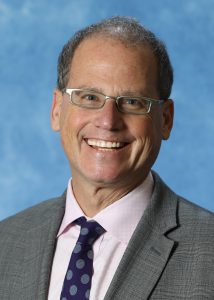
Jewish overnight camp was always the place where I could be my best self. It’s no exaggeration to say that Camp Barney Medintz made me the man, the father, the husband, and the leader I am today. So, nothing makes me happier than to tell you that our southeast Jewish overnight camps are planning to open for summer 2021, registration is robust, and Federation fundraising for camp scholarships is breaking records!
With a goal to send nearly 1,000 kids to camp, we have raised a record-breaking $41,000+ through the annual Start a Campfire campaign, and over $725,000 in total for camp scholarships this year. Camp directors are using all they’ve learned in the last year along with CDC and American Camp Association guidance to keep kids and counselors safe for the coming summer.
There’s a deeper urgency behind Federation’s push to get more kids to camp. After a year of cooped up COVID living, and a year of virtual learning for many, our kids are hungry for each other and the joy of living with peers at camp. They’ve missed so much over this past year.
It’s not just kids who need camp, and not just stressed-out parents who need their children to go off to camp for fun and independence. As Jodi Rudoren, editor of The Forward writes, “the Jewish world needs camp. The way it creates a feeling of home is rarely replicated in synagogue or school. That sense of calm that washes over everyone as they emerge each Friday evening in their whites. That intensity, that closeness, that warmth, and pure fun — all essentially, intrinsically, tied up in Jewish identity and sealed with a singalong.”
A darker truth is that many kids are feeling anxious and depressed. Children handle stress differently depending on their age, and they generally have a high susceptibility to the longer-term consequences of anxiety on their mental health. We anticipate that those who are stuck in negativity may require professional help.
Our camps will be ready! To keep camps an emotionally safe space, directors are prioritizing having trained mental health providers on their campuses this summer to support the emotional needs of campers. “We are experiencing a world-wide shared trauma experience,” Jill Goldstein Smith, Senior Program Manager at Foundation for Jewish Camp reminds us. “Camp provides a bubble of sorts, but it is also a safe space to be vulnerable, which is where the growth happens.”
For sure, some aspects of camp will be different this summer. Rethink the bunk as a “pod.” Generally, campers will spend more time outdoors than in the past. They will do most things with their pod — eating, playing, and living together, while physically distancing from other groups. Camp directors can provide more details about these safety protocols — just ask them!
I rejoice that our Atlanta community understands the long-term power of overnight camp to build Jewish identity and lifelong engagement. I’m excited that scholarship funds are still available! Give your kids a summer without screens at our amazing Jewish overnight camps. They can’t wait to welcome you and Melissa Scholten-Gutierrez, who manages Federation’s Overnight Camp initiative, can’t wait to answer your questions and even help you pick the right camp.
Be sure to send me a photo of your child when he or she returns home happier, wiser, stronger, and more independent than you ever imagined!


